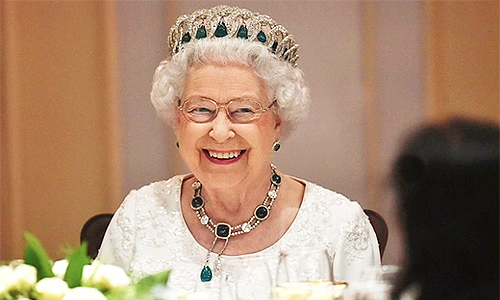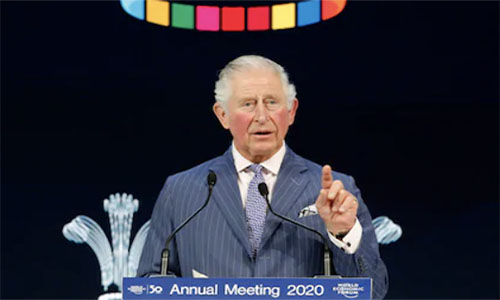
by ROCCO LOIACONO – THE Queen is dead. Long live the King.
These are the words that must be uttered upon the death of a sovereign. They establish the practice that there is no break in the sovereign power, which passes immediately to the heir upon death, along with the guardianship of our constitutional form of democratic government.

- List Item #1
- List Item #1
- List Item #1
It is with great sadness that we acknowledge the passing of Queen Elizabeth II at 96 years of age.
The second Elizabethan era has finished and the reign of King Charles III has begun.
REIGN
The standard for Queen Elizabeth’s 70-year reign, the longest of any monarch, was set on her 21st birthday, April 21, 1947, when then Princess Elizabeth was with her parents, King George VI and Queen Elizabeth (later the Queen Mother) and younger sister (Princess Margaret) on a tour of South Africa.
In a speech broadcast via radio from Cape Town, the princess dedicated her life to the service of her country and all her peoples with these words: “I declare before you all that my whole life whether it be long or short shall be devoted to your service and the service of our great imperial family to which we all belong.”
The Queen remained faithful throughout her life to that solemn pledge given five years before she ascended the throne suddenly at the age of 25.
Her reign saw 15 British prime ministers, 16 Australian prime ministers, 14 US presidents, and she served as head of state to 14 nations in the Commonwealth. It is unlikely any of us will ever see anything as enduring.
As former Prime Minister Tony Abbott wrote in his tribute:
“We have lost an exemplar of duty, honour, and faithfulness but deep thanks for her life should mingle with numbness and sadness at this loss.
“Nine tenths of the world’s people have known no other Queen. We can but hope the world might see her like again but none of us ever will.
“It is so typical of this remarkable woman that she was discharging her duty till her last day on this earth.”
Just like her great-grandmother Queen Victoria’s reign, Queen Elizabeth’s was one of constant change.
Throughout it, Queen Elizabeth acknowledged that change and kept consistent with public expectations.
As one example, her decision in 1992 to pay income tax against the wishes of her then prime minister, John Major.
SCANDALS
That year, the 40th of her reign, was one the Queen herself described as her “Annus Horribilis,” following the scandals that surrounded her children – the ending of the marriages of Princess Anne, Prince Andrew and Prince Charles, and the devastating fire at Windsor Castle.
In the speech in which she used those words, given at a reception hosted by the City of London, the Queen accepted criticism but argued that it should be tempered with gentleness, good humour and understanding.
The Queen had moral foresight, great responsibility, but was able to correctly understand the public mood and never indulged in political-style pandering or interference.
Therein lies another lesson from the Queen’s leadership: that the crown should always be above politics. It is the great strength of our constitutional monarchy. We dispense with it at our peril.
And so we look to King Charles III. Just as there were comparisons made between Queen Elizabeth II and Queen Victoria, comparisons may also be made between Charles and Queen Victoria’s son, Edward VII. Edward VII, while Prince of Wales, was not immune from scandal.
Feckless, a notorious womaniser and gambler, it was long thought he was not fit to be king.
Indeed, Queen Victoria kept him away from many official duties.
However, upon ascending the throne, he proved to be an able monarch, playing a part in the reorganisation of the British Navy, fostering good relations with European countries, especially France.
EDWARDIAN
Called the Edwardian era, his reign saw many changes in technology and society, including the first flight by the Wright brothers in 1903 and the introduction of the age pension in 1909.
Time will tell whether Charles will resist the recent temptations he has displayed to indulge in political affairs.
For now, we honour the life of Queen Elizabeth II, the oldest, longest serving, and most revered monarch of modern times.
We give our grateful thanks for her life of unstinting duty and service.
God Save The Queen! PC











While we’ve largely suspended our campaign commitments for now, we also have an influx of new members pouring in. If you’d like to consider joining AML, sign up at http://www.monarchist.org.au/membership. God Save The King!
Obviously Prime Minister Albanese has had second thoughts, no doubt his spin doctors and focus group results have warned him that this is not the time for promoting a republic.
You now say that a republic referendum will be considered if Labor is given a second term in 2025. What is wrong with our very successful constitutional monarchy that needs to be changed?
So why do you have an Acting Minister for THE Republic in your Cabinet of Ministers, why the expense and especially at a time when you and the government you lead complain about the public debt position, which of course was substantially contributed to by previous Labor governments 2007-2013 and handed over to the Abbott led Coalition in September 2013 including Labor Budget for 2013/14 expensive commitments including NDIS and Gonski education grants to the States and Territories for which Labor made no provision in that budget to pay for.
“PRIME Minister Anthony Albanese is planning a re-education program in an attempt to condition voters to ditch what his government calls a “ridiculous and archaic” constitution.”
Commonwealth of Australia, constitutional monarchy and very successful democracy.
So please Australian Republican Movement explain in detail what changes you would propose to make to the Constitution if another referendum succeeded as compared to the last referendum that failed, explain why a change is needed and how it could be justified with due regard for the huge cost to our nation.
And please refrain from deceptive commentary and misleading people.